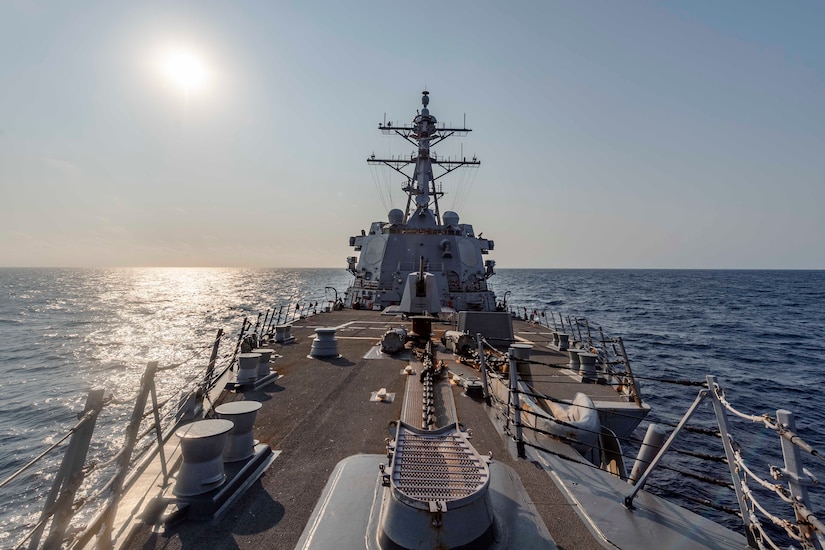May 4, 2020 | BY JIM GARAMONE , DOD News
While the coronavirus pandemic has reshaped U.S. government priorities,
Americans must remember that the world remains a dangerous place, Defense
Secretary Dr. Mark T. Esper said during a Brookings Institution webinar.
Americans need to concentrate on the virus, but other
threats and nations may take advantage of COVID-19 to further their interests,
the secretary told Brookings senior fellow Michael O'Hanlon in today's virtual
conversation.
"We're still seeing all the same bad behavior out there
that we saw before," Esper said.
The secretary noted that Russia is probing air defenses in
Alaska and over the North Sea and that the Chinese in the South China Sea are
"more pushy" of late.
Both Russia and China are confronting COVID-19, but it is
impossible to know the truth about the extent of the pandemic in those
countries, Esper said. "They are not reporting it as much, but we know
that they're concerned about it," he added.
His message to DOD personnel is to remain vigilant.
"These are uncertain times. You don't know how states or militaries will
act," he said. "So we [have] got to remain vigilant out there on the
front lines."
Esper noted that a key tenet of the National Defense
Strategy is dynamic force employment. "It's a way by which you maintain a
degree of strategic predictability to ensure the readiness of your force, but
garner a higher degree of operational unpredictability," he explained.
The military — even as it's countering the coronavirus — is
still taking steps to implement the strategy, the secretary said.
Russia and China are the two main threats to the United
States and its allies, followed by Iran, North Korea and violent extremism,
Esper said.
To counter China, the United States has changed the bomber
presence in Guam, has done more freedom-of-navigation floats and flights and
simply has made things more unpredictable for the Chinese, he said. U.S.
Indo-Pacific Command has "done a good job in terms of maintaining that
show of force, that deterrence, that capability and readiness that we need in
the … region," Esper said.
Some of the Chinese provocations may be unprofessional
conduct by pilots of sea captains, he said, but some bad behavior is
"aggressive actions that are outside the norms of the international rules,
whether they're claiming territory or space that simply is not theirs."
"We want to make sure that we maintain, again, the laws
of the sea, and the international rules that have sustained us all very well
for decades now," the secretary said. "And we see the Chinese
continue to try and bend those, to change those and then to shape them in their
own favor."
The Russians remain a problem in Europe, Libya and Syria,
the secretary said. "I would say with regard to NATO, the alliance has
held strong," he said. “I've talked to many of my counterparts from Europe
about their state of readiness, how we can help them, etc. But over the last
few years, I think we've seen NATO readiness increase. I think overall, the
trend for NATO readiness has been positive in terms of capacity, capability and
the ability to deploy in a timely manner."
Iran has been hit very hard by the coronavirus, and it's had
an impact on the economy and on society, Esper said. "As we've been
saying, if they pay more attention to their people, divert their funds to
helping the population instead of funding malign activities from Africa all the
way through the Middle East, … if they focus their attention, resources on
their people, it could be a much better place for the Iranians," he said.









No comments:
Post a Comment